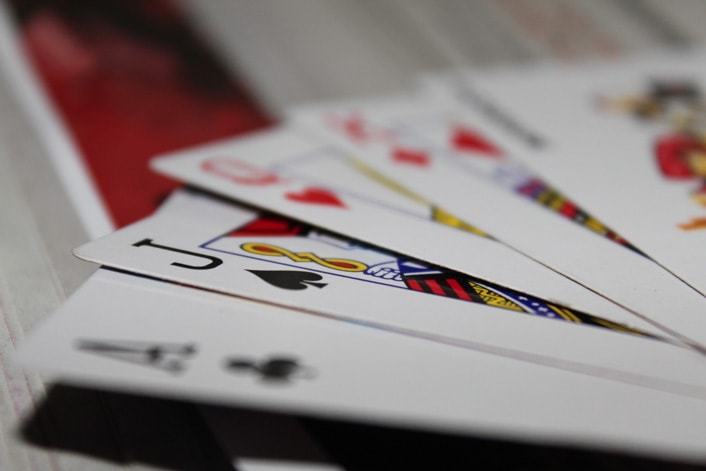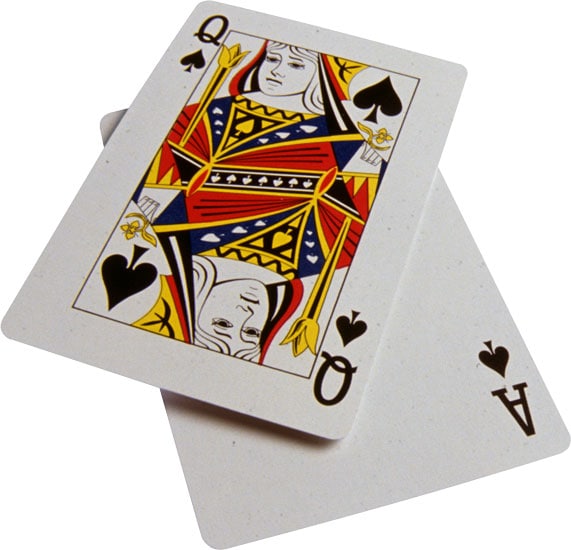
The game of Blackjack is one of the most popular types of card game, enjoyed as both a social game at home and in the ritz and glitz of a casino. It’s an integral part of the card gaming world, but despite its global popularity, historians and researchers are still none the wiser as to its exact origins.
Today, Blackjack remains one of the most popular card games in casinos all over the world. It has also successfully made the transition online, with gaming platforms and virtual casinos offering new and innovative variations of the game – including themed versions like Deal Or No Deal Blackjack, where you can consider the Banker’s offer – and live games. But how did this phenomenon start?
Tracing its origins
The general consensus is that the origins of blackjack lie in European casinos during the 1700s.
A popular game in 18th century French casinos was Vingt-un (Twenty One), with the aim of the game to be dealt cards that reach a total of twenty one without going over that.
Despite its popularity avec les Français, Vingt-un was actually first recorded in Spain during the early stages of the 17th century – it was even mentioned by Miguel Cervantes in his Don Quixote epic.
Nevertheless, the game rose to prominence with the fashionable French elite before it made its way across the world during the 18th and 19th centuries, even reaching as far as America thanks to the French travellers and sailors who brought it with them.
By the latter half of the 18th century, the game had spread to Germany – where it was known as Siebzehn (Seventeen and Four) – the Austro-Hungarian Empire and Prussia. In Britain, this universal game of chance eventually developed into the more complex Pontoon, a game that surged in popularity after the First World War. However, it would be the Americans who would have the biggest part to play in the development of the game as we know it today.
The American Influence
Vingt-un found its place on American shores during the early 1800s. To appeal to American appetites and keep players playing, gaming houses began offering bonus payouts on the game, including the ten-to-one payout for a hand consisting of the ace of spades and a jack from either of the two black suits (jack of clubs or jack of spades). As you may have already guessed, this hand was named the “Blackjack”, which soon became the colloquial name for the game even after the bonus was removed.
By the time the Nevada Gaming Commission passed real money gaming legislation in 1931, a full set of rules were put in place for the game, ultimately ensuring high standards across gaming houses and parity for players across the state.
Of course, these days a winning hand doesn’t depend on being dealt that black jack; aces can be low or high, jacks, kings and queens are worth ten, and all the other cards in a pack have face value.

Did you know?
As you might expect given its centuries-old history, there are all sorts of interesting facts about the game of blackjack. Here are just a handful:
- Blackjack has the best house edge for a casino game – The house edge is the advantage that the casino has over the player. Slot machines typically have a 10% house edge, roulette around 5.26% and the best craps wagers 1.41%. Blackjack, when played properly, only has a house edge of 1%.
- Card counting isn’t illegal – Movies like 21 and even Rainman can give the impression that counting cards are illegal during a game of blackjack. However, unless an external device or digital software is being used, the practice of counting cards itself isn’t actually illegal.
- Blackjack winning and losing streaks are extraordinary – Although poker winnings are often talked about, the game of blackjack has created some of the most incredible winnings and losing streaks in the casino world. Don Johnson “broke” Atlantic City by winning a total of $15 million playing blackjack for six months in 2011, while in 2007 entrepreneur Terry Watanabe once lost $5 million in a single day at the tables.
- Comprehensive Guide to the Board Game Go (weiqi, baduk) - January 23, 2024
- Are Creative Suites Changing Gaming - October 30, 2023
- How Classic Games Have Been Reimagined for Modern Audiences - October 5, 2023